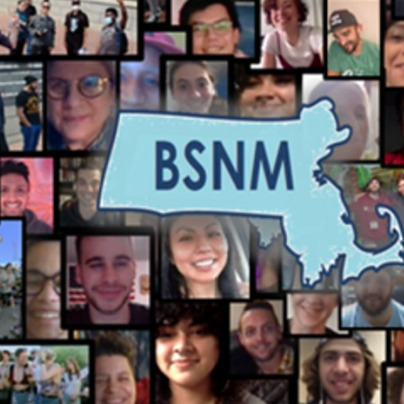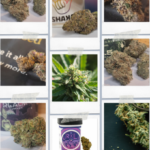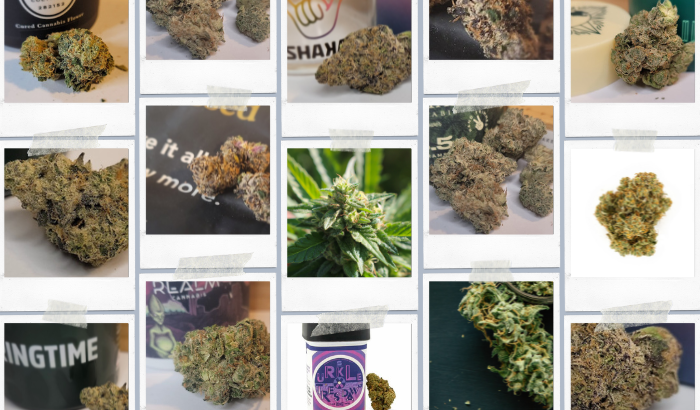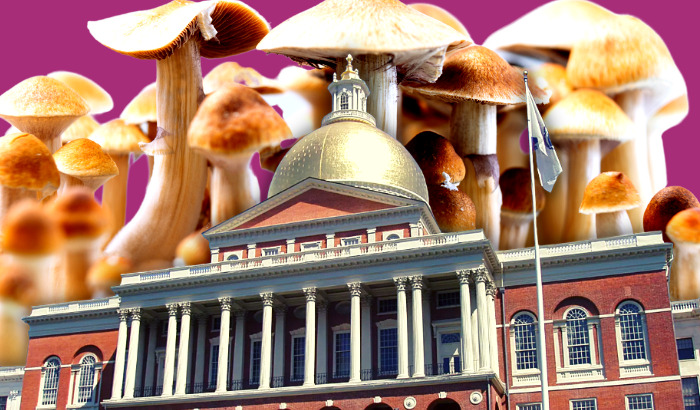
Legislation to end all criminal charges for possession, use, growing, and non-commercial sharing of two grams of pure psilocybin, DMT, ibogaine, and mescaline
Ed. Note: While Talking Joints Memo is focused on cannabis culture and products, we also see that psychedelics are the next theater in the war to end the War on Drugs. The movement is very much underway already, as the volunteer network Bay Staters for Natural Medicine (BSNM) has successfully pushed efforts to decriminalize psychedelic plants in Somerville, Cambridge, Easthampton, and Northampton, with various similar efforts underway elsewhere. BSNM currently has three pieces of legislation filed in the Massachusetts legislature, and to help walk readers through them we asked the group’s board to summarize them in brief. This is the first post outlining their efforts on Beacon Hill.
Bay Staters for Natural Medicine, a grassroots community group with more than 2,000 volunteers across New England, filed three pieces of legislation to comprehensively end Massachusetts’ War on Drugs.
The all-volunteer organization, composed of over a dozen local groups, has worked with six city councils in Massachusetts to pass measures to deprioritize psychedelic plants and arrests for possession of all controlled substances.
These bills represent the most expansive model to improve access to care with psychedelic plants and a least punitive model for treating all substance use as an issue of public health yet filed anywhere in the United States.
HD 1450 / SD 949 An Act Relative to Plant Medicine
Filed by Representative Sabadosa and Senator Jehlen, this legislation will end all criminal charges for possession, use, growing, and non-commercial sharing of two grams of pure psilocybin, DMT, ibogaine, and mescaline. For context, the following chart explains the approximate amounts of the dried plant and fungi material protected by the legislation:
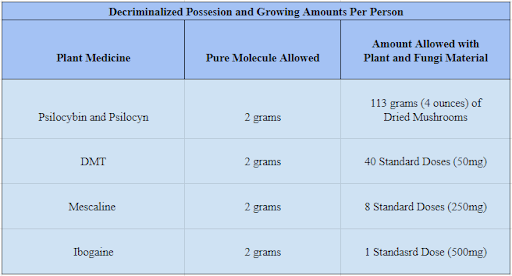
Leveraging money from the New Approaches PAC, funded by multistate cannabis companies and pharmaceutical companies, the states of Oregon and Colorado have legalized some forms of psilocybin treatment. This legalization model created an appointed board to write thousands of rules and regulations around use, forbidding the way that psilocybin has been conventionally used in the United States: at home or in nature with a trusted friend of a person’s choosing.
In contrast, this Massachusetts legislation presents a model where residents can non-commercially grow and share their own psilocybin mushrooms as nonprofits and businesses push for future legislation regulating facilitation in a way that services can be accessible and affordable to everyone in need. In Oregon, the costs of care at treatment centers will be in the thousands of dollars, as dozens of Oregon counties have moved to roll back this top-down medicalized version of psilocybin legalization.
Notably, this legislation goes much further than California’s legislation, SB 58, which would end criminal charges for “the possession, planting, cultivating, harvesting, or preparation” of psychedelic plants and fungi “on property owned or controlled by a person.” This means that renters, which represent about half of the population of California, could still face criminal prosecution or stressful police encounters if there is a disagreement with a roommate or landlord.
Massachusetts’ legislation also uses the age of 18, rather than 21, citing the need for young adults to use these substances in transparent and legal settings with intention. The prohibition of alcohol for adults aged 18 to 21 has created a culture of binge drinking and pregaming that leaves new college students more vulnerable to abuses and sexual assault at fraternities. “Young adults with neurological diseases and mental health challenges shouldn’t be criminalized for exploring this option. Criminalization is the opposite of education on safe use,” remarks Jamie Morey, a founding member of Parents for Plant Medicine, a Bay Staters Coalition partner.
Unfortunately, publications like Double Blind and Psychedelics Today have refused to cover this legislation. Mainstream outlets like Marijuana Moment downplayed this historic legislation, failing to contextualize that two grams of these psychedelic substances is referring to the pure molecule. Efforts to correct this lack of coverage and misleading coverage have been ignored.




